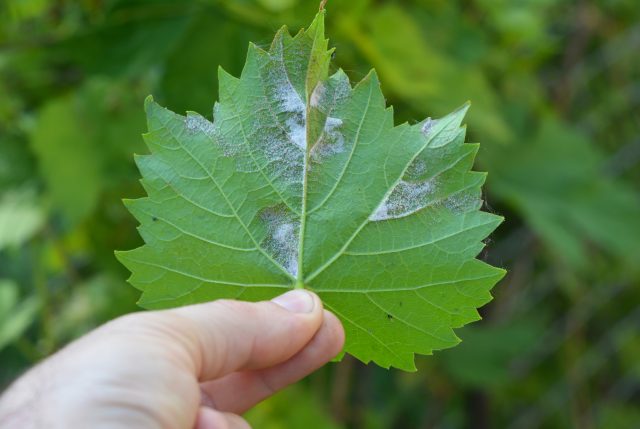This website uses cookies so that we can provide you with the best user experience possible. Cookie information is stored in your browser and performs functions such as recognising you when you return to our website and helping our team to understand which sections of the website you find most interesting and useful.
Hurricane Hilary leaves mildew concerns
While vineyard damage appears to be minimal, the Californian storm has exacerbated mildew challenges right before harvest.

The day after rainy remnants of Hurricane Hilary passed through the vineyards of Southern California, winegrowers were relieved to find little flood or wind damage but were also ramping up to fight mildew before harvest gets into full swing over the next two weeks.
“We had a good amount of rain on Sunday, but actually saw very little erosion damage in the vineyards,” says Brian Marquez, winemaker at Wiens Family Cellars in Temecula Valley in the mountains east of San Diego.
At Fresno in the Central Valley, Gallo spokesperson Krista Noonan reported, “Fortunately, no Gallo properties or vineyards were affected by the recent tropical storm. The weather system drifted east of our vineyards.”
Most of California’s Central Coast and North Coast regions were similarly unaffected by the storm.
“The eye of the hurricane passed just to the east of Temecula,” says Greg Pennyroyal, vineyard manager at Wilson Creek Winery in Temecula and professor of viticulture at Mt. San Jacinto College, explaining that the counterclockwise winds of cyclones deposit the most rain on the east side of the storm’s eye.
“We got about 1.7 inches at the winery in a short period of time.”
Powdery mildew infestation
Now the concern shifts to powdery mildew infestation, some of which has been lingering as the result of an abnormally wet spring and a cooler May and June followed by extremely hot July, all of which combined to retard grape development.
Harvest for the past several years have begun in early August.
“We are shifting to regenerative agriculture,” Pennyroyal says, “and the blocks that had been shifted soaked the water up while those in transition saw some gulleying.”
In anticipation of the storm, Pennyroyal’s vineyard crew and those in some other vineyards sprayed in advance hydrogen peroxide. Next, beginning Monday night, Wilson Creek crews began applying a second spray that includes raw milk which, Pennyroyal says, acts to acidify “as it does with yogurt.”
Early expectations for the grape harvest in Southern California had been optimistic before Hilary and continue to be after the storm, with lower yields but good quality even with the mildew concerns.

